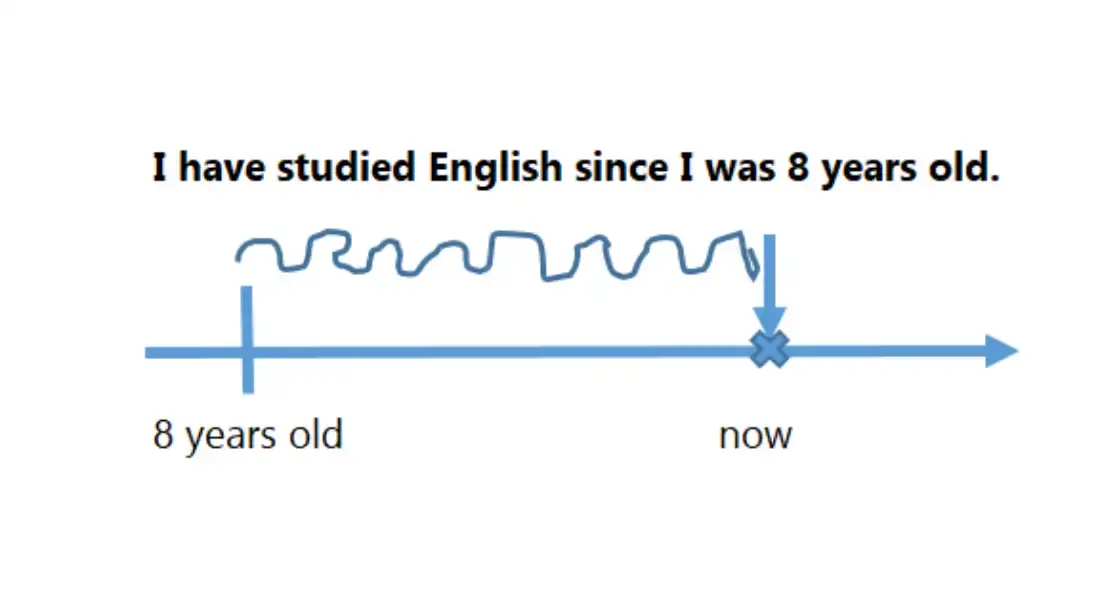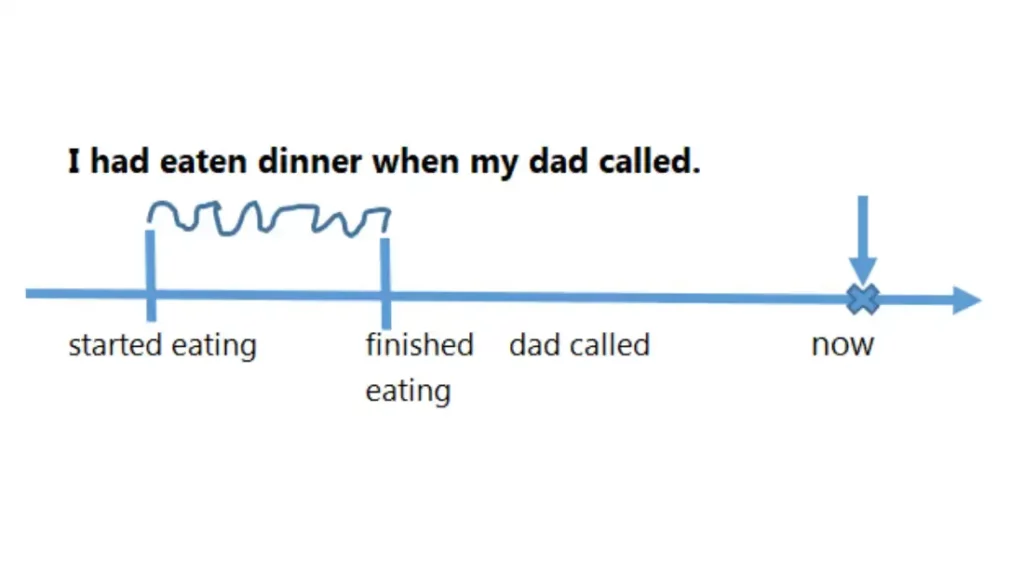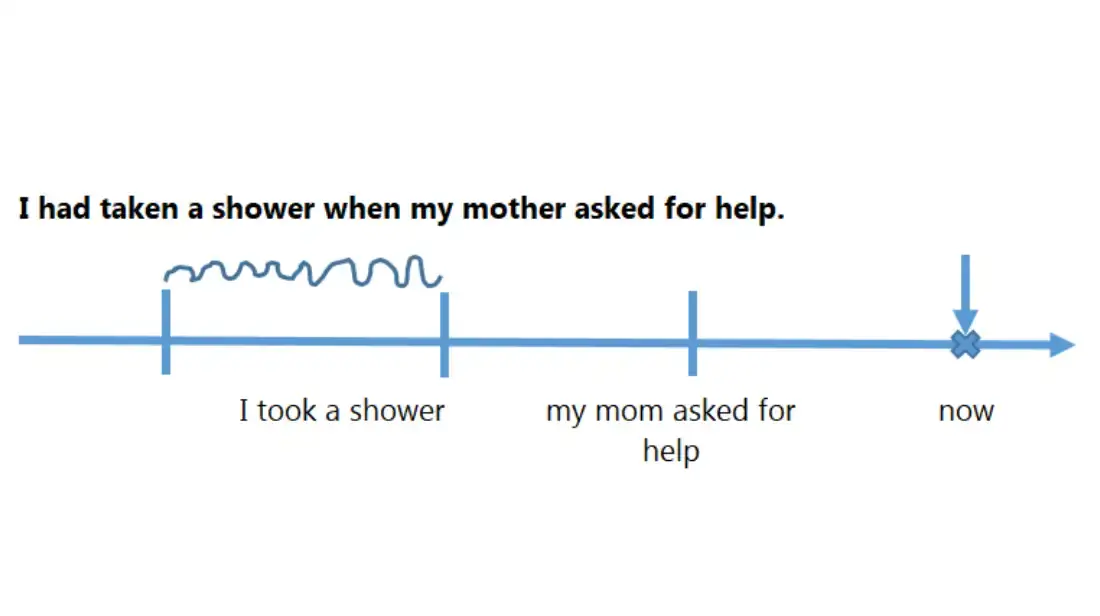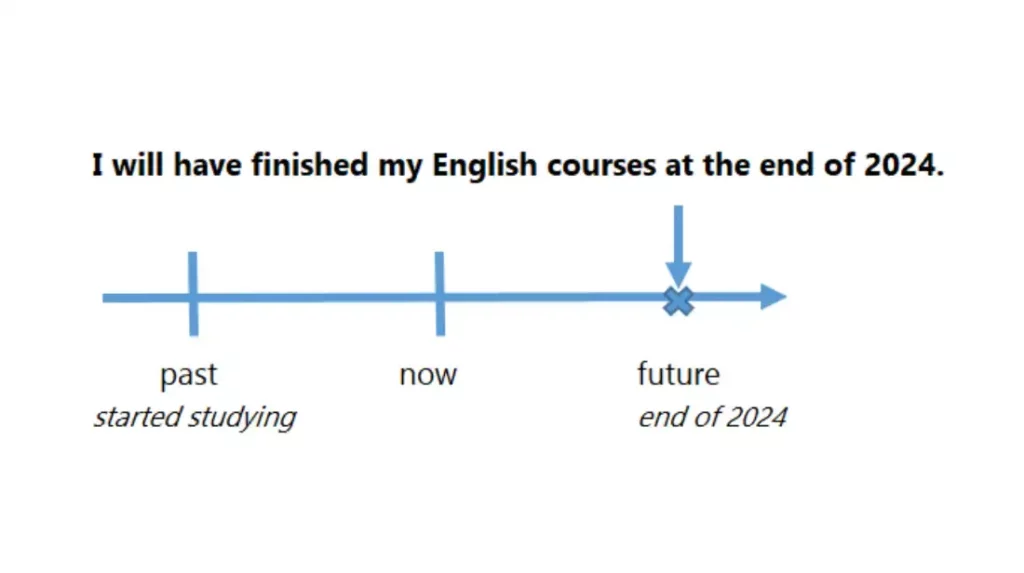
3 أزمنة تامة في اللغة الإنجليزية مع معانيها واستخداماتها وأمثلة عليها: ابدأ بتعلمها الآن!
تعتبر أزمنة الأفعال الإنجليزية من الجوانب المهمة في قواعد اللغة الإنجليزية. يميل متعلمو اللغة الإنجليزية كلغة ثانية غالبًا إلى الخلط بين أزمنة الأفعال بسبب بنيتها ومعناها المميزين في الجمل.
أحد أزمنة الأفعال المربكة ولكن المستخدمة دون وعي هو زمن الفعل التام في اللغة الإنجليزية. يستخدم العديد من المتحدثين باللغة هذه الأزمنة دون وعي ولكنهم غير متأكدين مما إذا كان الزمن المستخدم مناسبًا أم لا. في اللغة الإنجليزية، تتمتع الأزمنة التامة ببنية محددة تجعل المعنى المنقول أكثر وضوحًا عند تحليله.
على عكس الأزمنة البسيطة، تتحدث الأزمنة التامة في اللغة الإنجليزية عن الأفعال التي تم القيام بها بالفعل أو الانتهاء منها بحلول الوقت الذي نتحدث فيه عنها. إنها تُظهر علاقة بين الأفعال في الوقت الحاضر والأفعال في الماضي.
الأزمنة التامة في اللغة الإنجليزية هي المضارع التام والماضي التام والمستقبل التام.
يتم تشكيلها مع البنية “has/have/had/will have + الماضي التام.”يمكننا القول أن الزمن إما أن يكون في الحاضر أو الماضي أو المستقبل التام حسب وقت الانتهاء.
الأزمنة التامة في اللغة الإنجليزية تكون دائمًا مصحوبة بصيغة الماضي التام للفعل. صيغة الماضي التام هي صيغة الفعل التي تنتهي عادةً بـ “–d, -ed” للأفعال المنتظمة و “-en,” للأفعال غير المنتظمة، فهي تلعب دورًا كبيرًا في تكوين الأزمنة التامة في اللغة الإنجليزية، فهي أحد المؤشرات التي تساعدك على تحديد زمن الجملة بسهولة.
أسئلة لفهم الأزمنة التامة
لفهم زمن الماضي التام في اللغة الإنجليزية بشكل أفضل، لدينا هنا قائمة من الأسئلة النموذجية.
- What have you done? -> I’ve broken a wine glass.
- What have you done (+time marker)? -> I have delivered some pizza since 10 AM.
- What has happened (in the story)? -> The dog has bitten the hand of the enemy.
- How do you know …? -> I’ve heard a loud scream from a distance.
- Why do you think (you are qualified)? -> I have been a great contributor to sales.
عند تعلم الأزمنة التامة في اللغة الإنجليزية، يجب علينا الانتباه إلى بناء الجملة والمعنى المقصود الذي تنقله.

الأزمنة التامة في اللغة الإنجليزية مع معانيها واستخداماتها وأمثلة عليها
في هذا الجزء من المقال، سنناقش معنى كل زمن تام في اللغة الإنجليزية مع استخداماته وأمثلة لفهم أفضل.
زمن المضارع التام
يعبر زمن المضارع التام عن فكرة الأفعال أو المواقف في الماضي المرتبطة بالموقف الحالي. وهذا يوضح مدى أهمية الفعل الماضي بالنسبة للحاضر.
بناء: has /have + صيغة الماضي التام
فيما يلي مثال على الجدول الزمني لفهم زمن المضارع التام بشكل أفضل.
I have studied English since I was 8 years old.
استخدامات زمن المضارع التام في اللغة الإنجليزية
- للأفعال المتكررة أو المعتادة مع وجود علامة زمنية تشير إلى الماضي.
مثال: My younger sister has always passed her exams. (افترض أن أختي لا تزال في الصف الخامس في هذه المرحلة ).
- للأفعال الفردية المستمرة حيث يبقى كل من فاعل الفعل والنتائج.
مثال: I have been with my best friend since we were 10 years old. (My best friend and I are still friends).
- لفعل حدث في الماضي ولكن نتائجه لا تزال مرئية.
مثال : Mr. Jones has broken the window. (The window is still broken at this time we are speaking).
- للأفعال التي وقعت في فترات زمنية غير محددة ولم تنته بعد.
مثال: My friend has taken the book to the library this morning. (Imagine that by this time it is still morning).
- للأفعال التي وقعت في الماضي ولا تزال تتعلق بالوضع الحالي.
مثال: I have studied Spanish. (Until now I know a lot about Spanish and I remember them).
استخدام آخر لزمن المضارع التام في اللغة الإنجليزية هو مع علامات الوقت“just, yet, already, and still” والتي عادة ما تشير إلى موقف المتحدث.
- Just – a marker used to indicate an immediate past time: either ‘now’ or very close to now.
مثال: She has just eaten her breakfast. (Assume that at the time of speaking, it was just a few minutes after the doer’s breakfast).
- Yet/already – ويشير هذا إلى أن المتحدث يعتقد أن نتيجة الفعل يجب أو يمكن أن تكون موجودة الآن.
مثال: Have you done your homework yet? (You worked on your homework; is it done? How long will it take you to finish?)
- Still – يتم تدريسها عادة بعد already و yet.
مثال: My cousin still hasn’t seen her father. (My cousin and her father probably have not met or they have separated ways at some place).

زمن الماضي التام
تعبر صيغة الماضي التام في اللغة الإنجليزية عن تسلسل الأحداث أو الأفعال وعلاقتها ببعضها البعض. ويتم التأكيد على ترتيب الوقت في الفعل.
بناء: had +صيغة الماضي التام
فيما يلي مثال للجدول الزمني للرجوع إليه:
I had eaten dinner when my dad called.
استخدامات زمن الماضي التام في اللغة الإنجليزية
- لأفعال وقعت في الماضي قبل وقت معين، وكانت نتيجة هذا الفعل لا تزال قائمة في ذلك الوقت.
مثال: Lunch had been ready when she arrived. (افترض أن الغداء كان قد تم طهيه قبل وصولها).
- للتعبير عن العلاقة وتسلسل الأحداث الماضية باستخدام جملة الماضي التام كعلامة.
مثال: After he had done the report, he took his medicine. (في هذه الحالة يكون الفاعل قد انتهى من التقرير وبعد ذلك تناول دوائه).
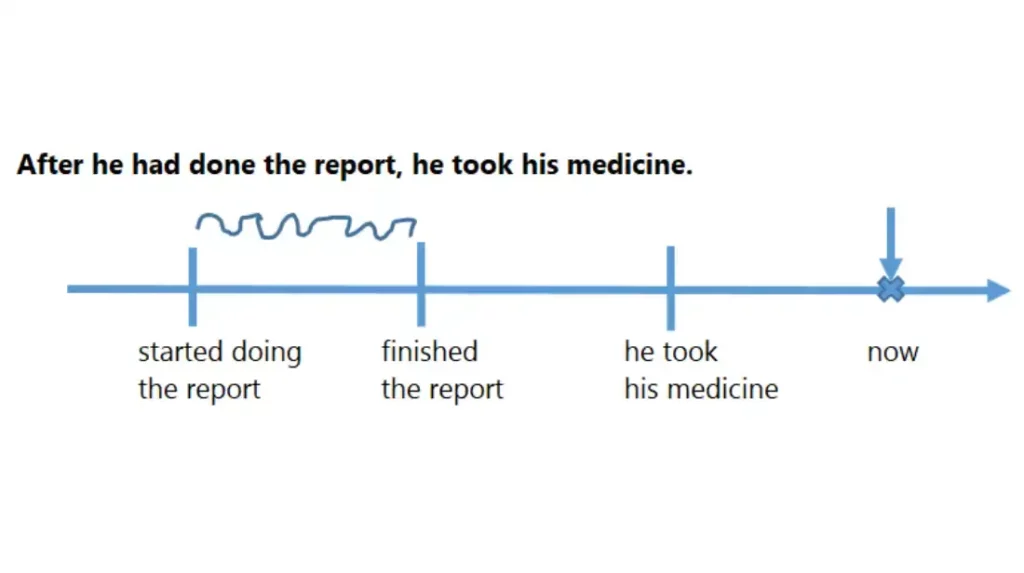
- “When” يتم استخدامه كعلامة زمنية.
مثال: I had taken a shower when my mother asked for help. (لم تطلب أمي المساعدة أثناء استحمامي، بل بعد أن انتهيت من الاستحمام).
- للتعبير عن العلاقات السببية بين الأفعال الماضية.
مثال: He had to step in because the students had been so noisy. (كان الطلاب صاخبين قبل أن يتدخل؛ أفترض أنهم ظلوا هادئين عندما فعل ذلك).

زمن المستقبل التام
يعبر زمن المستقبل التام عن فكرة الأفعال التي من المتوقع حدوثها أو اكتمالها في المستقبل. استخدام “will”و “shall” مهمة في هذا الزمن.
بناء: will / shall + have + صيغة الماضي التام
فيما يلي مثال للجدول الزمني للرجوع إليه:
I will have finished my English courses at the end of 2024.
استخدامات زمن المستقبل التام في اللغة الإنجليزية
- يعبر عن نقطة محددة في المستقبل حيث من المتوقع حدوث فعل باستخدام الكلمة“by.”
مثال: My mom will have changed my bedding by 4 o’clock this afternoon. (افترض أن الوقت الآن هو بضع دقائق أو ساعة فقط قبل الساعة 4:00 مساءً. ستكون والدتي قد انتهت من تغيير فراشي بحلول ذلك الوقت).
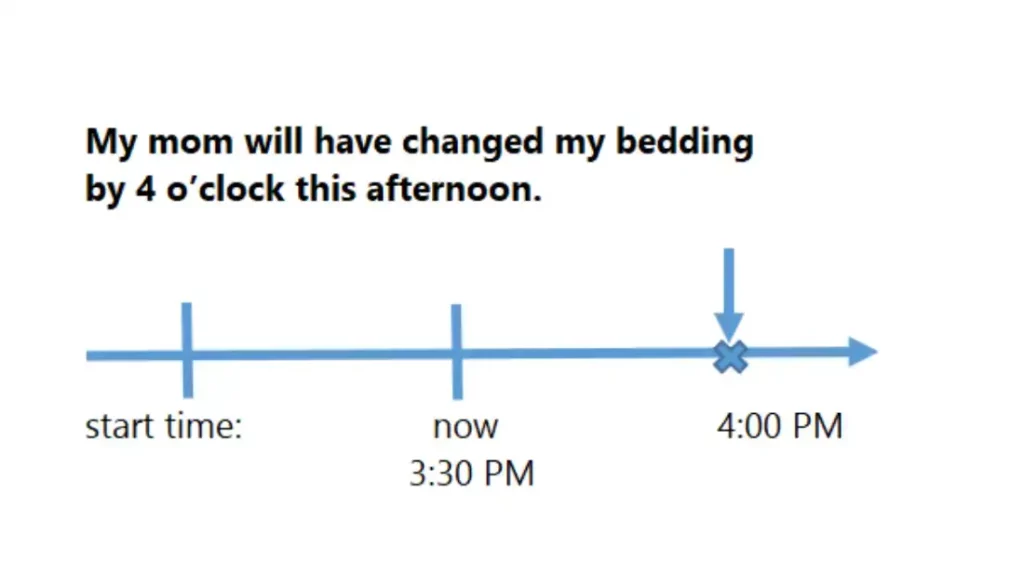
- تُستخدم لفترة زمنية مستقبلية ضمنية أو محددة (غالبًا مدى الحياة).
مثال: Mike studies hard so he will have received a good education. (مايك لا يزال يدرس ومن المتوقع أن يحصل على تعليم جيد).
- يستخدم كاستنتاج منطقي.
مثال: I’m waiting for my friend; she will have left by now. (أنا أتوقع حدوث فعل محتمل).


إن زمن المضارع التام في اللغة الإنجليزية هو أحد أكثر الأزمنة صعوبة وإرباكًا عند الاستخدام. وهذا أحد الأسباب التي تجعل بعض الطلاب يتجنبون هذا الزمن، وخاصة زمن المستقبل التام. غالبًا ما يتم تقديم زمن المضارع التام في اللغة الإنجليزية للمتعلمين المتقدمين.
يميل طلاب المستوى المبتدئ إلى عدم معرفة زمن المضارع التام في اللغة الإنجليزية، ولكن طلاب المستوى المتوسط والمتقدم هم أكثر عرضة لاستخدام هذه الأزمنة في محادثاتهم أو مهام الكتابة.
إن زمن المضارع التام في اللغة الإنجليزية يصعب فهمه بعض الشيء، ولكن التعلم والممارسة المستمرة يمكن أن يساعدك على أن تكون أكثر وعيًا باستخداماته وبنيته.
وقت التدريب!
حدد نوع الزمن التام المطلوب في الجمل التالية.
- The manager shall have announced the salary increase by 3:00 PM today.
- Mr. Bakers had already checked in at the airport when he realized he forgot his documents.
- I had reported the incident before the police arrived.
- After he had cooked dinner, my dad went to the poolside.
- Has Miss Brown finished doing her homework?
- I will have taken IELTS by this time in October.
- The president will have finished his term in 2025.
- The ship had arrived when security searched our belongings.
- Her father has been ill for three years.
- I have been in this company since 2016.
يمكنك العثور على إجاباتك هنا.

